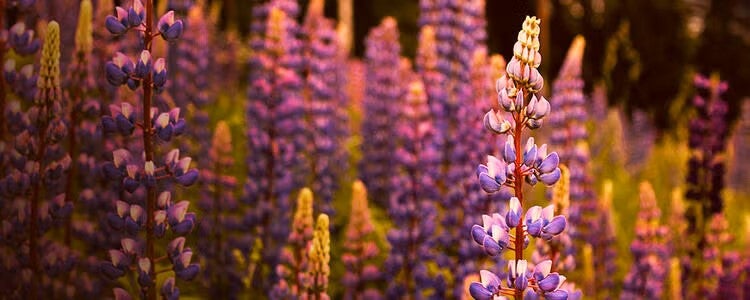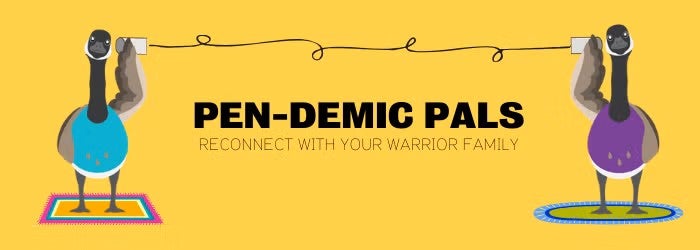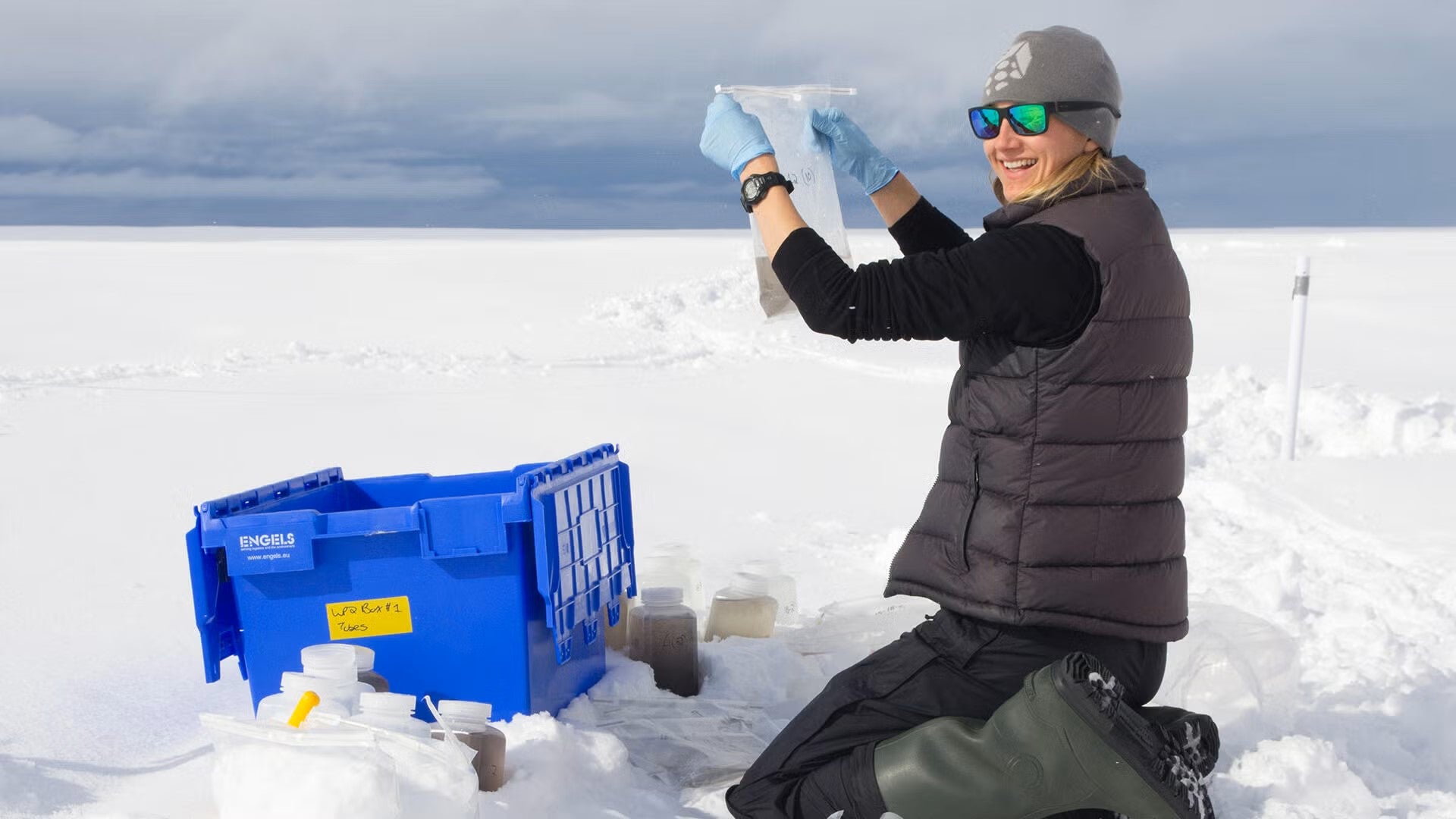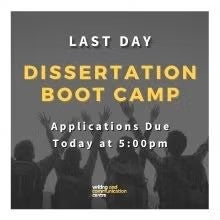Editor:
Brandon Sweet
University Communications
bulletin@uwaterloo.ca
W3+ aims to be a 'positively charged' space

This is the latest article in a series of Wellness Champion stories.
The Wellness Collaborative Wellness Champion for this month is W3+. Like an atom that has lost an electron, a positively charged W3+ strives to create space for its members against the negativity of all forms of oppression. “We don’t just talk about gender; that’s the environment, not the focus,” shares Laura, a member of the W3+ planning committee. Topics of conversation range from nutrition and yoga to conflict management and the mystery of prime numbers.
In February of 2019, W3+ hosted a Research Symposium exclusively for women-identified and non-binary attendees and presenters. This was a full day of panels, posters and networking. After the symposium, the W3+ team did a follow-up survey to receive feedback from participants on the value they received from the conference. One participant shared, “The energy was different. I did not feel policed for being who I am. It felt so much more relaxed, but that may be the UWaterloo environment as I enjoyed the teaching conference in a similar way. I can see huge benefits for such a space to discuss gender-based violence and trauma without having to submit proof over and over again.”
During the 2020 February reading week, W3+ hosted a writing retreat including a creative writing workshop. Participants shared openly and had vulnerable conversations. “We heard from participants that there was value in having a safe space where you can speak freely,” shared Andrea, a member of the W3+ planning committee.
Prior to the pandemic, women and nonbinary grad students, post docs, staff and faculty across disciplines would connect on the last Wednesday of each month. Currently, W3+ has ongoing conversations online through their MS Teams channels. Participants talk about everything from equity issues to pandemic parenting, share their accomplishments, and post pictures of their plants.
Visit the Wellness Collaborative website to read more of the story. Wellness Champions are individuals, groups, and/or departments that currently embody the Okanagan Charter through their everyday work. These stories celebrate individuals that support wellness in our learning, working, and living environment. Do you know someone who is going above and beyond to support the wellbeing of students, staff, or faculty? Please tell us about their story.
Arts launches Lupina Foundation Postdoctoral Research Fellowships

A message from the Faculty of Arts.
The Faculty of Arts is very pleased to launch a new postdoctoral program that is made possible by the generous support of the Lupina Foundation — a Canadian charitable organization committed to research and innovation in health and societal issues.
With applications open this week, the first two Lupina Foundation Postdoctoral Research Fellows will join Arts in September 2021. Their research focus can fall within any disciplinary area that investigates the social determinants of health, particularly at the intersections of health, society, and technology. Each fellow will work under the supervision of a faculty member from Arts yet will be encouraged to also seek interdisciplinary collaboration with researchers across the Waterloo campus.
“We’re very excited to partner with the Lupina Foundation and attract exceptional early-career scholars whose work has the potential to improve health and health outcomes in local to global contexts,” says Anna Esselment, Associate Dean, Graduate Studies in Arts.
With a $5K research stipend and a salary topped up to $70,000, Arts and the Lupina Foundation offer two funding models: external and internal, with the latter inviting prospective supervisors to use their own research grants to fund up to 50 per cent of the annual salary.
“These postdoctoral fellows will advance both the Faculty of Arts’ and the University’s goal to build greater interdisciplinary strength and produce research with tangible social impacts,” says Ana Ferrer, Associate Dean, Research in Arts, who co-leads the new program with Esselment.
Applications for the 2021 fellowships are due March 28, 2021. Prospective postdoctoral fellows from anywhere in Canada and prospective supervisors from Waterloo Arts can learn more about the Lupina Foundation Postdoctoral Research Fellows, including eligibility and application details.
Pen-Demic Pals, reconnecting the Warrior family

A message from the Student Success Office.
Campus is quiet and we’re living and studying through our screens. It can feel lonely for students who are away from campus without their friends, classmates, and even the geese! We know staying in touch during a pandemic is hard, and that we are all trying to create meaningful connections. our UWinterloo Pen Pal Program was a hit for students last term, so we are running a similar program called “Pen-Demic Pals” which is open to all of our current students at Waterloo.
Students will be able to register for the program starting today and can learn about the program through a campus-wide social media campaign.
Once registered, they’ll then be matched with their Pen-Demic Pal in mid-February. Students can decide to connect with their pen pal virtually in a way that best fits their schedule. This could include weekly emails, phone calls, texts or video chats. The best part is that it’s up to them to set the parameters. The formal program concludes mid-March, but students are welcome to stay connected afterwards if they choose.
“As a new student I have not yet had the chance to step foot on campus or meet any other students," says current student Devashish Tupkary. "I was excited to see the UWinterloo Pen Pal program to make connections with other students and I absolutely recommend that other students sign up! My pen pal and I met over Zoom and plan to continue our meetings after the program ends. I feel much better knowing that I have made a new friend and hopefully one day we will meet in person!”
Help us reach as many students as possible by posting information to your social media accounts or by including the graphics and registration link in your in your class slides.
You can Download the Digital Asset toolkit whichincludes suggested language for social media content, supporting graphics for PowerPoint slides, Instagram (posts and stories), Twitter and Facebook posts.
For questions about the program, connect with Lauryn Poulin from the Student Success Office.
Entering the Dark Zone of Greenland

By Elizabeth Kleisath. This article was originally published on Waterloo News.
Greenland is the world’s largest “non-continental” island, and about 80 per cent of this island is covered by the Greenland Ice Sheet. In recent years, however, the melting of this ice sheet has accelerated, leading to an increased contribution to rising sea levels.
A portion of this increased melting can be attributed to the presence of dark algae on the ice sheet surface. Contrary to white, reflective ice, the dark pigmentation of these algae absorbs sunlight and warms the surrounding ice, causing melting. Climate change is causing Arctic summers to become warmer and longer than in the past. These longer summers allow for increased ice algal growth, and the resulting algal blooms are causing increased darkening and melting.
As a geomicrobiologist, Jenine McCutcheon, a professor in the Earth and Environmental Sciences department at the University of Waterloo, has been studying Greenland’s glacier algae in an effort to uncover their changing annual patterns. This research, done during her postdoctoral fellowship at the University of Leeds, was published January 25th in Nature Communications.
“What we’re trying to do is to better understand how algal blooms form, why they form where they do and is there a way to predict how they’ll form in future melt seasons,” says McCutcheon. “One season to the next, algal blooms may change and vary in intensity, making them difficult to model year-to-year.”
Understanding algal bloom development is important because these blooms darken the ice sheet surface, causing it to melt more quickly than ice that is free of glacier algae. Ice sheet darkening by glacier algae is just one reason why surface melting of the Greenland Ice Sheet has accelerated in recent decades. Since the Greenland Ice Sheet contains enough water to raise sea level by over seven meters, it is crucial to understand all of the processes that impact melting in order to predict how melting will proceed in the years to come.
Behind the research
The study focused on five different locations along a large band on the Western edge of the Greenland Ice Sheet known as the “Dark Zone” due to its low albedo (a measure of the amount of solar radiation reflected by a surface). The ice surface in this zone is made dark by impurities such as algal cells, mineral dust, and black carbon (particles produced by fossil fuel combustion). Algal blooms are the primary cause of the darkening observed in this region.
In order to determine where glacier algae get their nutrients, the team measured the photosynthesis rate of glacier algae in the presence of the different nutrients. They found that there was a distinct improvement when the algae were provided with phosphorus. The team concluded that the algal blooms in this region were regulated and limited by the presence of phosphorus.
Upon finding this, they analyzed the surface dust present in the Dark Zone around the algal blooms, and found the mineral hydroxylapatite. Hydroxylapatite contains the bio-available phosphorus needed to nourish the algae, and likely facilitates the development of glacier algal blooms by supplying phosphorus to the ice surface habitat.
The reliance of algae on this mineral dust then creates a positive feedback loop, wherein the more algae that bloom, the greater the ice sheet melting. As more ice melts, mineral dust frozen in the ice becomes exposed, thus providing more nutrients to help the glacier algae grow. However, more studies are needed to quantify this feedback loop and measure its extent.
“The findings of this study will impact how we predict where the blooms will happen in the future,” McCutcheon says. “We’re working to be able to model these algal blooms and match them with satellite data to get a better understanding of the overall impact of these algal blooms on ice sheet albedo reduction and resulting melting.”
This research was done through an international collaboration by researchers from the United Kingdom, Germany, Belgium, Canada, and Denmark, and was funded by the UK Natural Environmental Research Council Consortium Grant.
Workplace ergonomics and other notable notes
"As the need to work from home continues, we should all be considering the ergonomics of our home office workspaces," says a note from the Safety Office. "Home office setups can vary from a dedicated home office complete with appropriate furniture to spaces temporarily created, such as a laptop placed on the kitchen table. While the kitchen table may be functional as space to put a computer, is it ergonomically functional?"
The Safety Office has developed a Home Office Ergonomic Tip Sheet that provides guidance on creating ergonomically correct home workspaces. Please take a few minutes to review the tip sheet and assess your home office setup.
"The Safety Office continues to offer ergonomic assessment services through virtual means and can provide presentations at team meetings on request. Contact the Safety Office with questions about home office ergonomics."

Today is the last day to apply for the Writing and Communication Centre's Dissertation Boot Camp. "Make progress on your thesis or dissertation work," says a note from the WCC. "This four-day boot camp combines virtual workshops, individual writing time and consultations. Join us to stop stalling and start writing." Applications must be received by 5:00 p.m.
Beyond the Bulletin Episode 75

The latest episode of the Beyond the Bulletin Podcast is now live. Tiz Mekonnen, the director of a Waterloo-led project to increase the number of Black and Indigenous engineering and technology professionals tells us why it is so necessary and seeing such interest from other universities. A Pharmacy professor debunks myths about the Pfizer and Moderna COVID-19 vaccines. T4 and T4A tax forms will soon be ready. And hundreds attended a memorial for Pearl Sullivan, dean emeritus of Waterloo Engineering.
Link of the day
35 years ago this week: the Challenger disaster
When and Where to get support
Students can visit the Student Success Office online for supports including academic development, international student resources, leadership development, exchange and study abroad, and opportunities to get involved.
Instructors can visit the Keep Learning website to get support on adapting their teaching and learning plans for an online environment.
Updated Course templates are now available within your course in LEARN to help you build and edit your content and assignment pages quickly. Support for Winter 2021 is available.
The following workshops, webinars, and events are offered by the KL team (CTE, CEL, ITMS, LIB):
Independent Remote Course Design Essentials. Self-directed, continuous self-enrollment course in LEARN.
Getting Ready to Facilitate Online Courses: TA Training, Monday, January 18, 2021, 8:30 a.m. to Friday, February 12, 4:30 p.m.
Microsoft OneNote - Class Notebooks, Wednesday, February 3, 1:00 p.m. to 2:00 p.m.
Employees can access resources to help them work remotely, including managing University records and privacy of personal information. Here are some tips for staying healthy while working from home.
Stay informed about COVID cases on campus by consulting the COVID case tracker.
Whether you’re a student or faculty member, the Writing and Communication Centrehas virtual services and programs to help you with all of your academic writing needs. This term we have added evening and weekend one-to-one appointments with our peer tutors, and our NEW one-to-one workshops, where you can learn the content directly from one of our writing advisors.
- Undergraduates: Work with us to brainstorm, draft, revise, and polish your assignments in one-to-one appointments. Ask questions and learn writing tips at our Instagram Live Q&A sessions, and beat isolation while improving your writing skills at the weekly PJ-friendly writing groups.
- Graduates: Meet with our advisors in one-to-one appointments. Join the online writing community at the Virtual Writing Cafés, learn how to present your work at Speak Like a Scholar, or get moving on your dissertation at Dissertation Boot Camp.
- Faculty and Instructors: Request custom workshops for your courses, join the Waterloo writing community at the Virtual Writing Cafés, or make progress on your article, book, or chapter in one-to-one meetings with our faculty specialist.
We understand that these circumstances can be troubling, and you may need to speak with someone for emotional support. Good2Talk is a post-secondary student helpline based in Ontario, Canada that is available to all students. If you feel overwhelmed or anxious and need to talk to somebody, please contact the University’s Campus Wellness services, either Health Services or Counselling Services. You can also contact the University's Centre for Mental Health Research and Treatment.
The Library has published a resource guide on how to avoid information overload.
The Faculty Association of the University of Waterloo (FAUW) continues to advocate for its members. Check out the FAUW blog for more information.
The University of Waterloo Staff Association (UWSA) continues to advocate for its members. Check out the UWSA blog for more information.
The Indigenous Initiatives Office is a central hub that provides guidance, support, and resources to all Indigenous and non-Indigenous campus community members and oversees the university Indigenization strategy.
WUSA supports for students:
Food Support Service food hampers are currently available from the Turnkey Desk on weekdays from 7:30 a.m. to 7:00 p.m. in the Student Life Centre. If you have any questions please email us at foodsupport@wusa.ca.
Centre for Academic Policy Support - CAPS is here to assist Waterloo undergraduates throughout their experience in navigating academic policy in the instances of filing petitions, grievances and appeals. Please contact them at caps@wusa.ca. More information at https://wusa.ca/services/centre-academic-policy-support-caps.
WUSA Commissioners who can help in a variety of areas that students may be experiencing during this time:
- Equity – equity@wusa.ca
- Co-op and Experiential Affairs – coop.affairs@wusa.ca
WUSA Student Legal Protection Program- Seeking legal counsel can be intimidating, especially if it’s your first time facing a legal issue. The legal assistance helpline provides quick access to legal advice in any area of law, including criminal. Just call 1-833-202-4571.
Empower Me is a confidential mental health and wellness service that connects students with qualified counsellors 24/7. They can be reached at 1-833-628-5589.
When and Where (but mostly when)
Healthy Warriors at Home. Free programming including Online Fitness, Health Webinars, Personalized Nutrition and more from Warriors Athletics and Rec. Open to students, staff, faculty and alumni. Register today.
Renison English Language Institute continues to offer virtual events and workshops to help students practice their English language skills.
Warriors vs. Laurier Blood Donation Battle. Join your fellow Warriors, donate blood and help us win the Blood Battle against Laurier for a second year in a row. Set up a profile or add the PFL code: UNIV960995 to your account if you have a blood.ca account already. Questions? Contact WarriorsInfo@uwaterloo.ca.
Warrior Rec Free Programs for Students, January to February.Wide range of free opportunities available to keep students active and healthy including:Fitness Classes (On-Demand), Health and Mindfulness Webinars, Personalized Nutrition Guides, Personal Training Consultations, Small Group Training and Warrior Reset. Register today.
Drop-in to Warrior Virtual Study Halls on Wednesdays from 5:30 p.m. to 7:00 p.m. Come together in this virtual space to set goals and work independently or in groups each week.
Warriors truLOCAL Kickback Program, January 20 to February 20. Support your Warriors varsity teams by purchasing a pre-set truLOCAL box filled with the best quality locally sourced meat and fish. Find out more information and purchase a box today.
IT Seminar: CEL-Management Information Dashboard – Visualizing Data through PowerBI, Friday January 29, 9:00 a.m. to 9:45 a.m. Join online.
New faculty information session, Friday, January 29, 10:00 a.m.
NEW - Warriors Think Pink (Shoot for the Cure) Campaign, Monday, February 1 to Sunday, February 7. Join your fellow Warriors for free online HIIT Classes, Esports Tournament and hair cutting as we create awareness and raise funds for the Breast Cancer Cause at the Canadian Cancer Society. Find out more now.
WaterLeadership: Intellectual Property 101 and Commercialization, Tuesday, February 2, 12:00 noon to 1:30 p.m.
Board of Governors meeting, Tuesday, February 2, 1:30 p.m.
World Wetlands Day Research Symposium, Tuesday February 2, 2:30 p.m. to 4:00 p.m.
Concept Working Session: Researching Like a Pro, Tuesday, February 2, 5:30 p.m., virtual event.
World Wetlands Day Distinguished Lecture “Wetland loss when we know better” with Professor Rebecca Rooney, Tuesda,y February 2, 7:00 p.m. Panel discussion “How do we as a society protect our wetlands?” to follow.
NEW - Noon Hour Concert: Do̩ nàke 齐心 (Two people, one mind), Wednesday, February 3, 12:30 p.m.
NEW - Concept Intro Session: Small Business Panel, Wednesday, February 3, 6:00 p.m., virtual event.
NEW - Master of Taxation Virtual Information Session, Wednesday, February 3, 7:00 p.m. to 8:00 p.m.